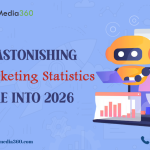The Impact of Social Media on SEO

Social media tracks down their performances through the application of social signal keys such as likes, shares, comments, and other engagement metrics. Google uses social signal metrics to understand a page’s visibility and popularity among users and accordingly ranks them from the most relevant to the least relevant on the SERP charts. Undoubtedly, there is a connection between social media and search engine optimization. Application of social media best practices and optimization of social signals metrics can help websites to improve their visibility frequency, and configuration thereby enhancing rankings on the SERP charts. These are the few significant impacts of social media on SEO:
Boosts Content Performance
Businesses should use social media to build brand loyalty and brand recognition. Brands considering social media promotion an alternative to their existing advertising methods are missing out on huge opportunities. they are encouraged to post not only on their respective websites but also on social media platforms as user engagement is supreme. Brands posting about their products and services are likely to engage more people to the websites leading to higher rankings on the search engine result pages and terming the websites as SEO friendly.
Social Media Helps in Authority Building
Search engines prioritize websites with strong backlinks from other popular websites. Google measures the authority of websites before referring to websites as heavy-weighted websites. Producing quality content is important to impact SEO results and linking quality backlinks. Social media has helped non-popular websites with innovative, useful content for the users to rank on the SERP chart. The emergence of social media has eased the search engine optimization process as quality content is shared and recommended more among viewers on social media. Websites on the search engine result pages build authority with time by attaching quality backlinks and proving SEO friendly every time with content ideas.
Bring Traffic to the Websites
The idea of search engine optimization is to increase visibility and exposure, bringing organic visitors to the websites. Social media helps grab targeted traffic way faster than search engines. As the entire human race views social media actively getting targeted traffic is a lot easier because someone or the other on the platform is looking out for products similar to your company’s products. Social media encourages brands to develop creative, useful content ensuring audiences come and never leave.
Builds Brand Awareness
Brands are able to improve their SEO presence because of social media. Brands need to post regularly, posting regularly helps brands stay connected to their audiences and stay ahead of renowned brands. Regular posts help brands to appear on the non-branded search terms by the users.
Reliable Social Profiles Build Trust
SEO improves brand loyalty, and to build a virtual reputation brands can consider social media a big asset. Social media helps brands to portray themselves as humanized brands, and allows brands to showcase to the audiences what set them apart from the other brands in turn leading to the development of faith among the audiences’.
Conclusion
The impact of social media on SEO is unarguably huge. SEO has improved brand exposure with the passage of time.






